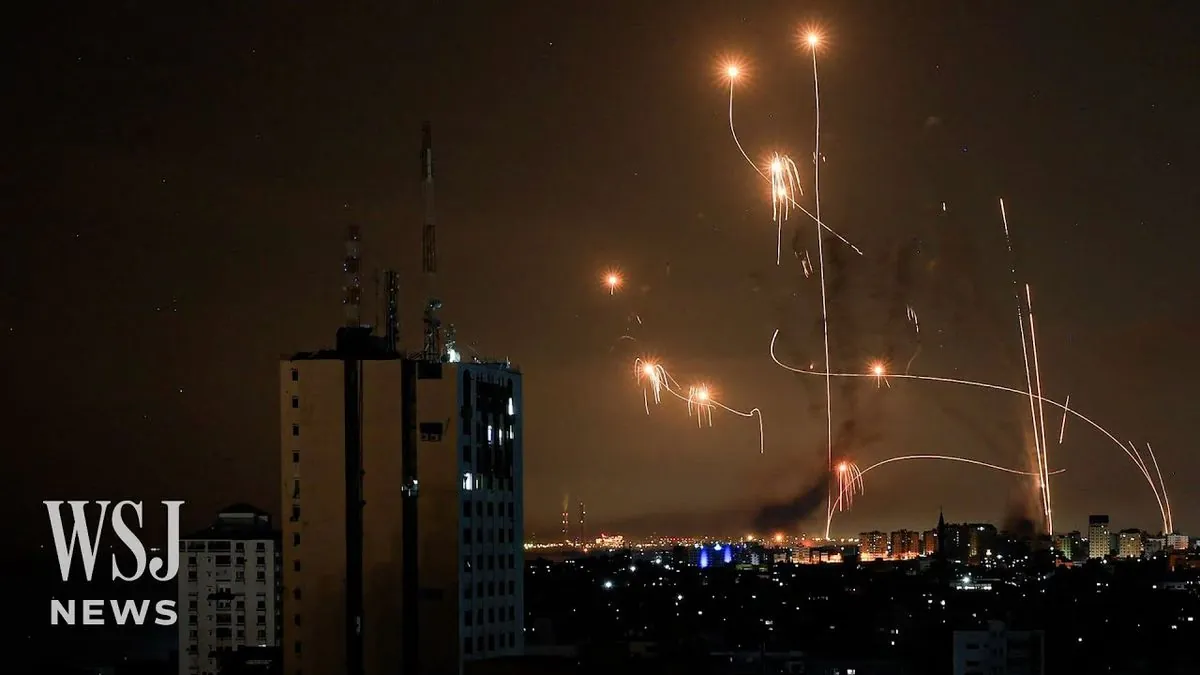Iran's Missile Strike on Israel: A Display of Weakness, Not Strength
Iran launches missiles at Israel in retaliation for Hezbollah strike. Despite some damage, Israel's robust defenses and economy remain strong. The attack underscores Iran's reliance on ineffective proxy warfare.

On October 1, 2024, Iran launched a missile attack against Israel, marking a significant escalation in regional tensions. This assault comes in response to Israel's recent successful operation against Hezbollah, Iran's proxy in Lebanon.
Israel's air defense systems, including the renowned Iron Dome, were immediately activated to counter the threat. These defenses, operational since 2011, are among the most sophisticated globally, rivaled only by those of the United States Navy. During a previous Iranian attack six months ago, US warships in the Mediterranean Sea provided crucial support by intercepting ballistic missiles beyond Earth's atmosphere.
Despite Israel's robust defensive capabilities, some Iranian projectiles likely breached the protective shield. Reports of injuries have emerged, with damage caused by both direct hits and debris from intercepted missiles. However, it's important to note that Israel, with its population of 9.7 million and position as the world's 26th largest economy, possesses significant resilience.
Israel's defense budget, ranking 15th globally, underscores its military preparedness. The nation's technological prowess, exemplified by its advanced defense industry and thriving tech sector, further bolsters its ability to withstand such attacks. Even if Iran were to exhaust its entire missile arsenal capable of reaching Israel, the impact on Israel's overall strength and functionality would be minimal.
This missile strike appears to be more of a symbolic gesture than a strategic military action. The attack follows the recent decimation of Hezbollah's leadership, including the elimination of its long-standing Secretary-General, Hassan Nasrallah, who had held the position since 1992. Iran's response seems to stem from frustration rather than a position of strength, highlighting the ineffectiveness of its proxy warfare strategy.

The contrast between Israel's precise strike against Hezbollah and Iran's broad missile attack is stark. Israel's operation, which targeted key Hezbollah figures and an Iranian general, demonstrated superior intelligence and execution. Conversely, Iran's use of weapons like the Shahab-3 ballistic missile, while impressive in scale, failed to achieve any significant strategic objectives.
This event underscores the intricate relationship between Iran and its proxies, particularly Hezbollah, which has been active since its founding in 1985 during the Lebanese Civil War. Hezbollah's presence in Lebanon effectively serves as an extension of Iranian influence, complicating the political landscape of a nation already grappling with economic instability.
The international community, particularly the United States, which has a long-standing military cooperation agreement with Israel, is closely monitoring the situation. As tensions in the region persist, the focus remains on maintaining stability and addressing the complex dynamics of proxy warfare in the Middle East.
"This unprovoked attack by Iran demonstrates their desperation and the effectiveness of our recent operations. Israel stands ready to defend its citizens and will not be intimidated by such acts of aggression."
In conclusion, while Iran's missile strike has caused some damage, it has ultimately failed to significantly impact Israel's national security or economic stability. Instead, it has further exposed the limitations of Iran's military strategy and the vulnerability of its proxy network in the region.


































